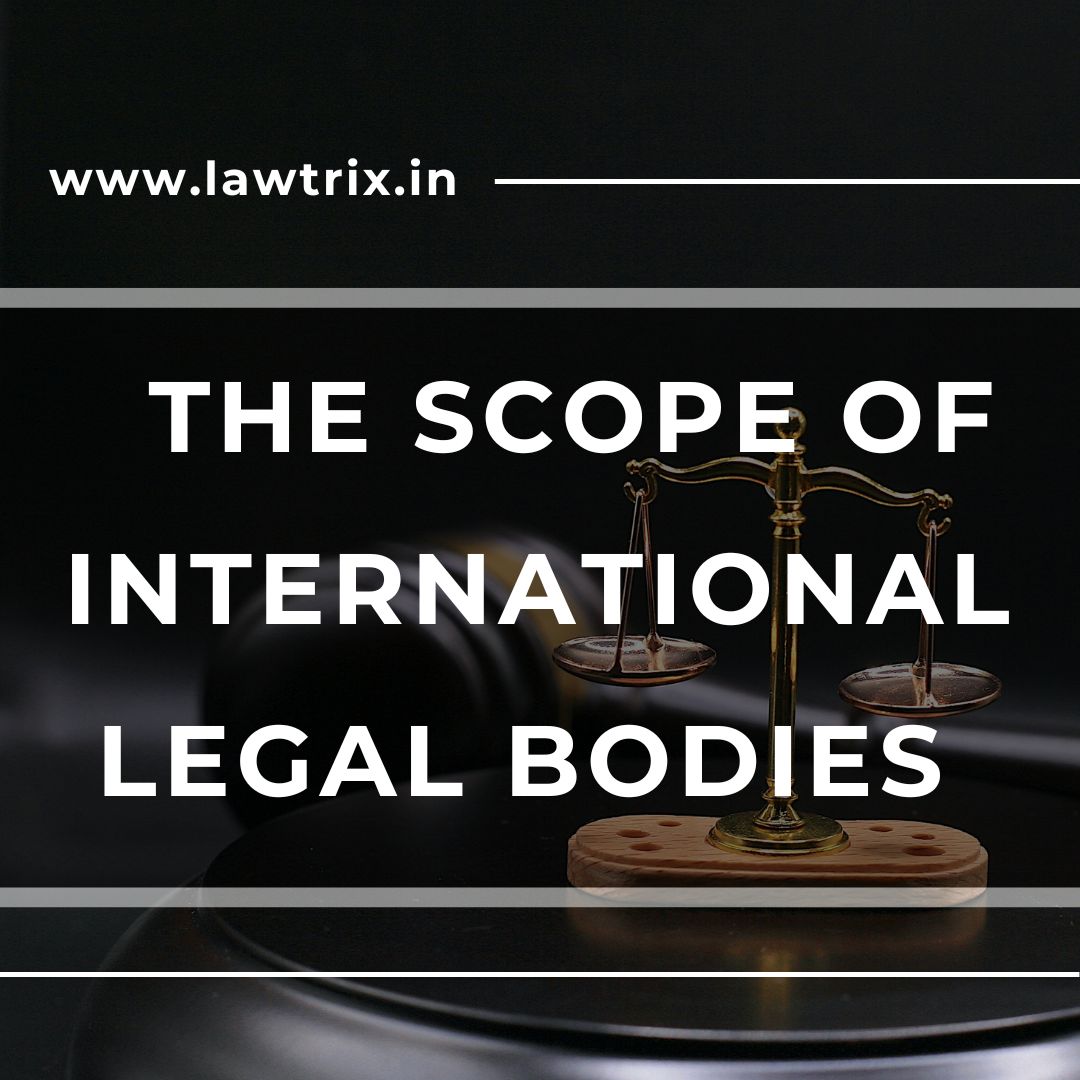


International legal bodies play a critical role in the
governance of global relations, the enforcement of international law, and the
resolution of disputes that transcend national borders. As the world becomes
increasingly interconnected through trade, diplomacy, human rights, and
technological advancements, the need for a robust legal framework to address
transnational issues has grown. These organizations are tasked with creating,
interpreting, and enforcing rules that govern the conduct of nations, corporations,
and individuals on the global stage.
The scope of international legal bodies extends beyond
traditional state-to-state interactions; they also deal with issues involving
private parties, multinational corporations, and matters affecting entire regions
or the global community. From safeguarding human rights and ensuring
international criminal accountability to resolving trade disputes and
protecting intellectual property, these bodies serve as pivotal mechanisms for
upholding international norms and fostering peaceful cooperation.
Through arbitration, adjudication, and the establishment of
legal standards, these institutions work to resolve conflicts, promote justice,
and encourage dialogue between diverse legal systems. Their role is essential
for the stability and predictability of international relations, providing
frameworks for states and non-state actors to engage in a rule-based global
order. Understanding the functions and significance of international legal
bodies is crucial in navigating and contributing to a world where legal
cooperation across borders is more important than ever.
With numerous international legal bodies covering specialized
areas such as trade, human rights, maritime law, and investment disputes, these
organizations offer an extensive network of legal infrastructure that shapes
the international legal landscape.
? International
Court of Justice (ICJ) – Also known as the World Court, the ICJ is the
principal judicial organ of the United Nations. It settles legal disputes
between states and provides advisory opinions on international legal issues.
? International
Criminal Court (ICC) – An independent international court that
prosecutes individuals for genocide, war crimes, crimes against humanity, and
crimes of aggression.
? World Trade
Organization (WTO) Dispute Settlement Body – The WTO’s judicial body
responsible for settling disputes arising from international trade agreements
among member countries.
? Permanent
Court of Arbitration (PCA) – An intergovernmental organization that
provides a variety of dispute resolution services, including arbitration,
conciliation, and fact-finding for disputes involving states, international
organizations, and private parties.
? European
Court of Human Rights (ECHR) – The judicial body of the Council of
Europe that oversees the enforcement of the European Convention on Human Rights
and handles complaints of human rights violations from individuals and states.
? International
Tribunal for the Law of the Sea (ITLOS) – Established to adjudicate
disputes arising out of the interpretation and application of the United
Nations Convention on the Law of the Sea.
? International
Centre for Settlement of Investment Disputes (ICSID) – A World Bank
Group institution that handles disputes between international investors and
states under bilateral or multilateral treaties.
? United
Nations Commission on International Trade Law (UNCITRAL) – A body that
focuses on the modernization and harmonization of rules related to
international trade.
? World
Intellectual Property Organization (WIPO) Arbitration and Mediation Center
– Handles disputes concerning intellectual property rights at an international
level.
In conclusion, international legal bodies serve as the
cornerstone for maintaining global peace, security, and cooperation by
providing frameworks for resolving disputes, enforcing international laws, and
safeguarding human rights. These institutions are critical in an increasingly
globalized world, where issues such as cross-border trade, environmental
challenges, international criminal justice, and human rights transcend national
boundaries. Through their work, they ensure that countries, corporations, and
individuals are held accountable to a set of global standards, promoting
fairness, transparency, and justice in international affairs.
The existence of these legal bodies enhances the stability of
international relations by offering peaceful and structured mechanisms for
conflict resolution. Their work in promoting legal cooperation across nations
ensures that international norms are upheld, fostering trust and collaboration
in a complex world. Moreover, these institutions are instrumental in shaping
legal frameworks that respond to emerging challenges, such as cybercrime,
global migration, and climate change, adapting international law to
contemporary realities.
As the world continues to evolve, the role of international
legal bodies will only become more pivotal. They not only mediate current
conflicts but also play a proactive role in creating a just, equitable, and
sustainable global order. By establishing precedents, fostering cooperation,
and ensuring that justice is served across borders, these organizations
contribute to the advancement of international law, helping to secure a future
where nations and individuals alike can coexist in harmony under a shared legal
framework. Ultimately, the continued support, respect, and engagement of the
global community with these bodies are essential to fostering long-term peace,
stability, and justice worldwide.